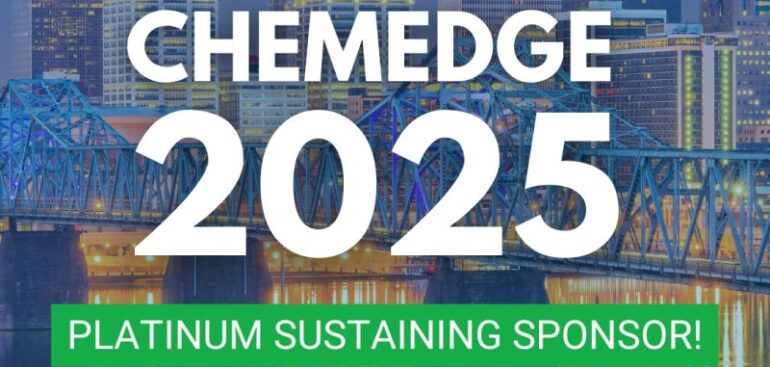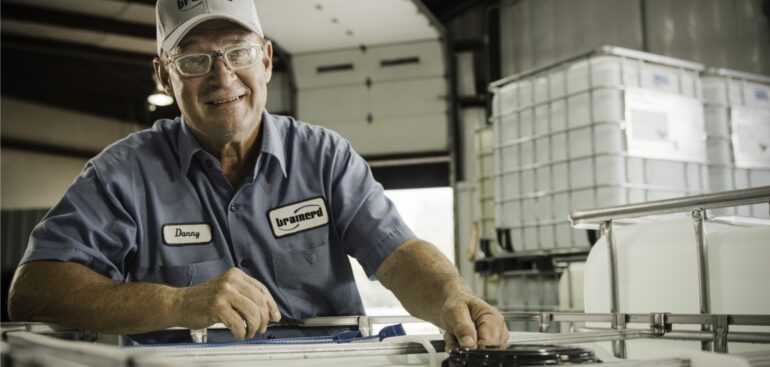Brief: Facilities that rely on a single hydrogen peroxide supply source face greater operational risk when supply tightens. With no new producers coming online and existing plants operating on aging infrastructure, even routine maintenance can disrupt production. This article explores why redundant sourcing, disciplined storage and handling, and reliable distribution partners are essential to maintaining operational continuity.
“In a tight market, reliability comes from doing the fundamentals right every day,” says Derk Pinkerton, Corporate Sales Supervisor. “Redundant supply only works if the chemistry, the equipment, and the people handling it are aligned. Stewardship is what keeps all three working together when conditions get challenging.”
Hydrogen peroxide is one of those chemicals most operations don’t think about until it becomes a problem. It supports essential processes across water treatment, manufacturing, energy production, pulp and paper, and environmental remediation. It works cleanly, reacts predictably, and often sits quietly in the background doing exactly what it’s supposed to do.
What has changed is the market that supports it. With no meaningful new domestic producers entering the market, and much of the existing capacity depends on aging production assets. Many facilities are operating near their practical limits, which leaves little room to absorb disruptions. When a producer goes down for planned maintenance or unexpected equipment issues, availability can tighten quickly. For operations that rely on hydrogen peroxide as a core process input, this isn’t just a purchasing concern. It’s an operational risk. Unlike some bulk chemicals, hydrogen peroxide cannot be stockpiled indefinitely. It degrades over time, and storage conditions must be carefully controlled. That reality limits how much buffer inventory a facility can realistically carry and places more importance on the reliability of the supply chain itself.
Facilities that depend on a single producer or distribution path are often the first to feel pressure when supply tightens. Delayed deliveries, spot-market pricing, and last-minute substitutions can disrupt production schedules and create downstream compliance challenges. In some cases, the impact isn’t measured in days, but in hours.
Redundant supply planning helps reduce that exposure. Working with qualified distributors who maintain multiple sourcing options, flexible packaging formats, and established logistics networks allows operations to stay ahead of disruptions rather than react to them.
Storage and handling practices also play a role in supply continuity. Contamination, incompatible materials, or poor temperature control can accelerate decomposition and take equipment or inventory out of service. In a constrained market, losing usable product to preventable issues adds unnecessary strain.
Transportation discipline matters just as much. Properly trained drivers, dedicated equipment, and thoughtful delivery scheduling help minimize on-site dwell time and reduce risk during transfer. Reliable distribution is not separate from process safety. It is part of it.
As hydrogen peroxide demand continues across critical industries, the question is no longer whether supply disruptions will happen, but how prepared facilities are when they do. Redundant sourcing, responsible distribution, and proactive planning help ensure hydrogen peroxide remains a dependable tool rather than a vulnerability.
For many facilities, redundant supply planning starts with choosing the right distribution partner. Brainerd Chemical Company supports industrial hydrogen peroxide customers through a diversified supply network designed to reduce single-point failures. Brainerd Chemical provides hydrogen peroxide in concentrations ranging from 1-50% that includes access to multiple qualified production sources, dedicated peroxide-compatible equipment, and flexible packaging options ranging from drums and totes to bulk deliveries.
Just as important is Brainerd’s stewardship approach. Storage compatibility, contamination prevention, transportation discipline, and customer training are treated as part of supply reliability, not separate safety checkboxes. By aligning operational knowledge with a focus on responsible distribution, Brainerd helps customers maintain continuity, protect on-site systems, and avoid the downstream impacts that occur when peroxide supply becomes constrained at the wrong moment.










